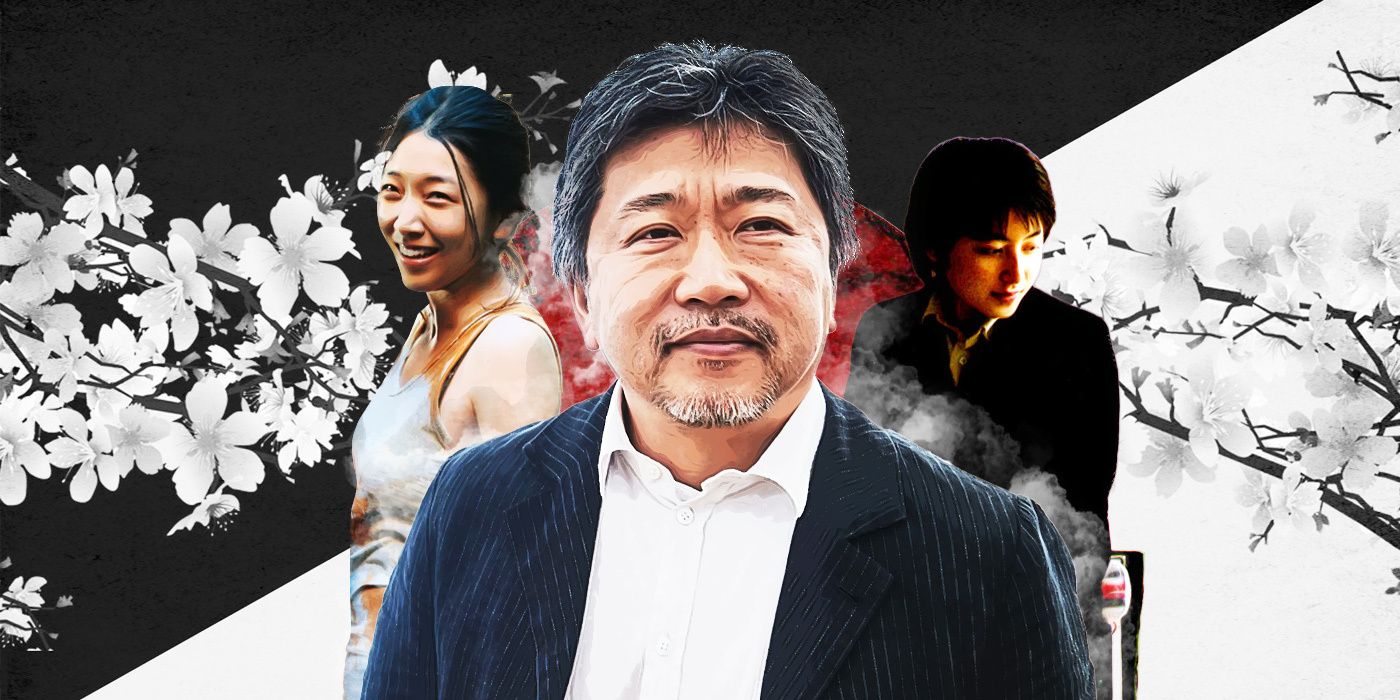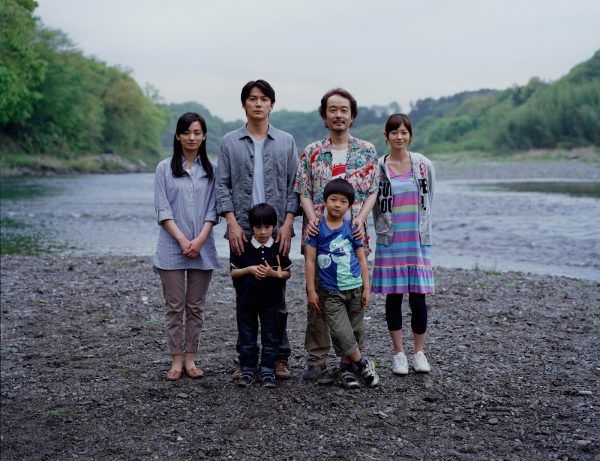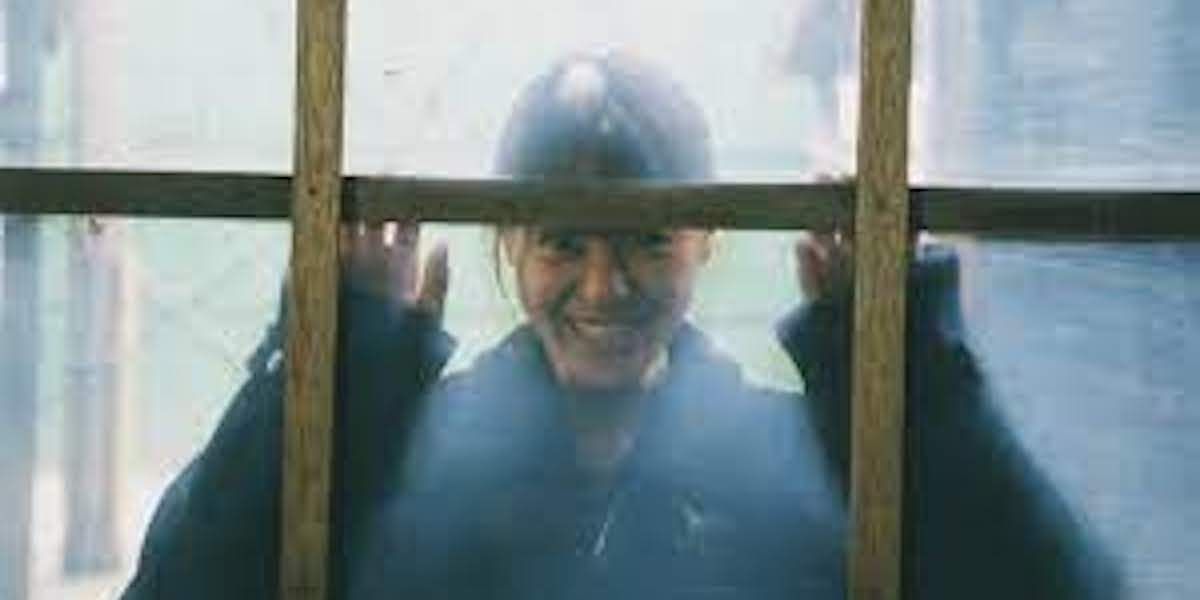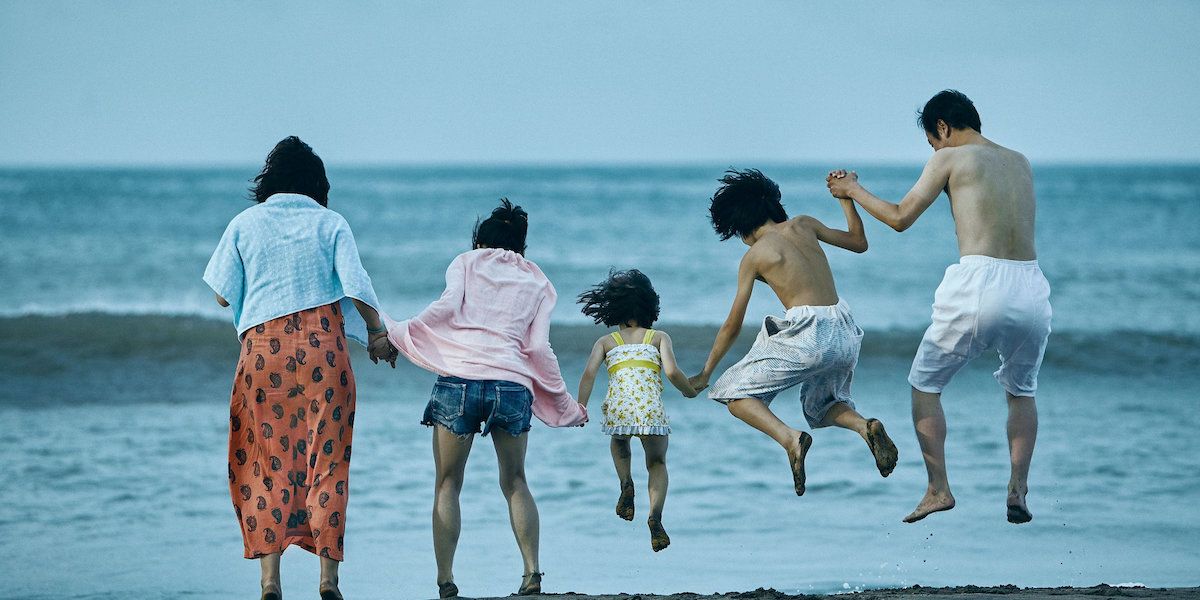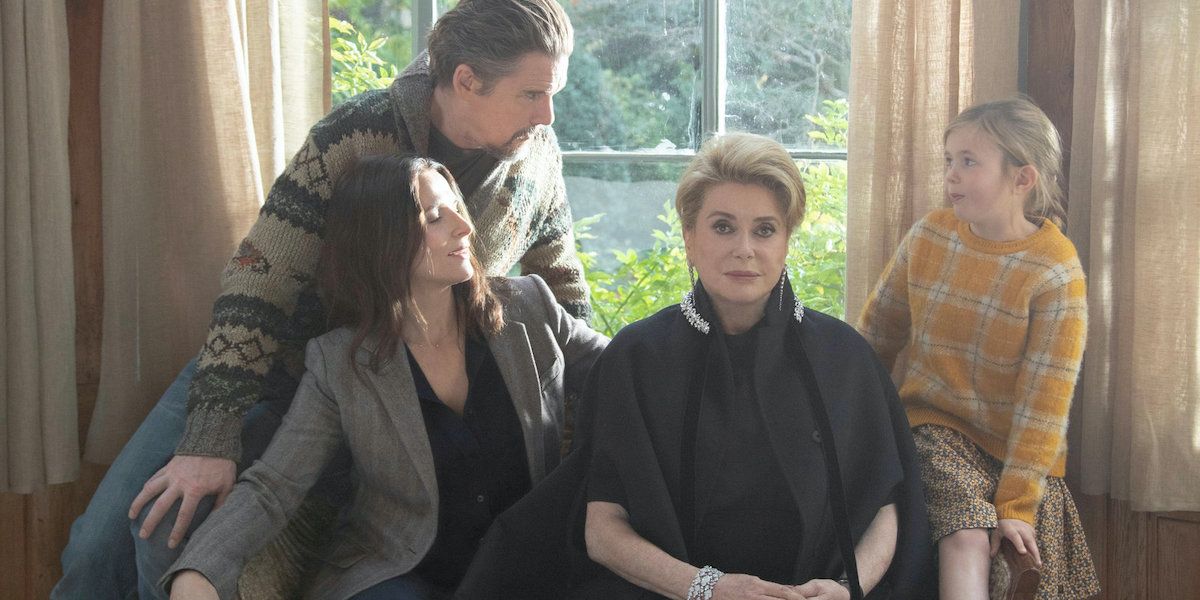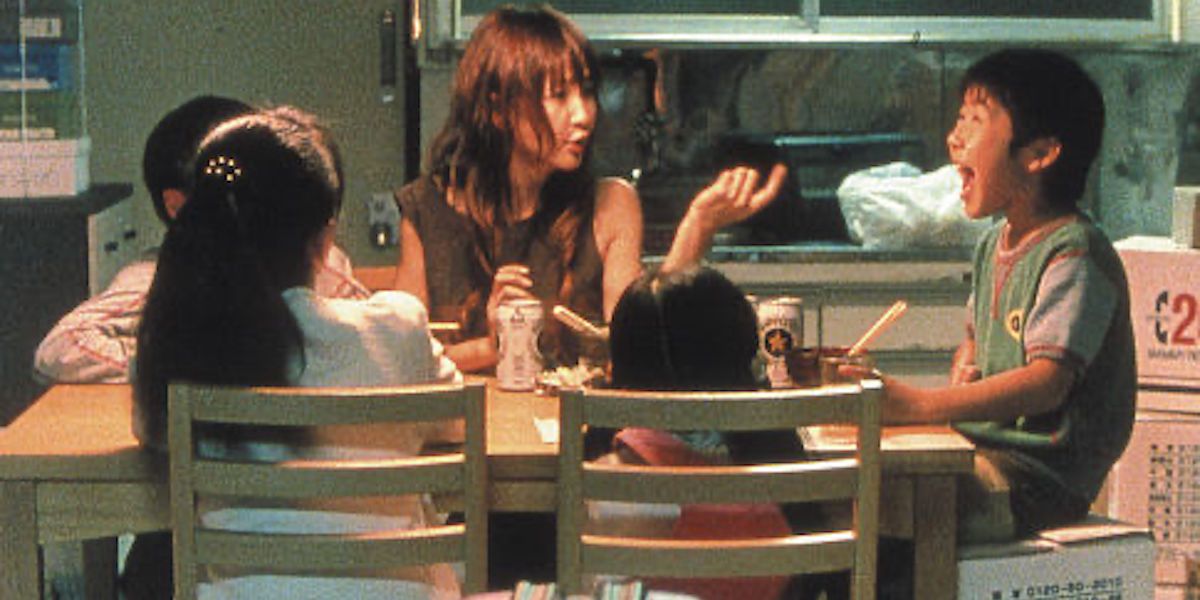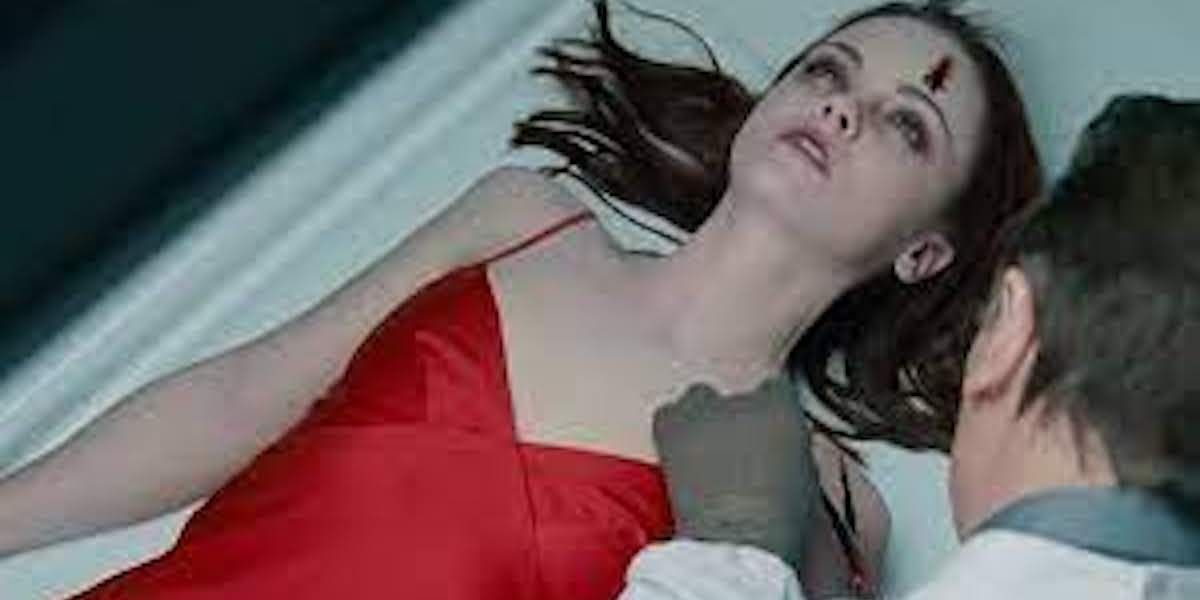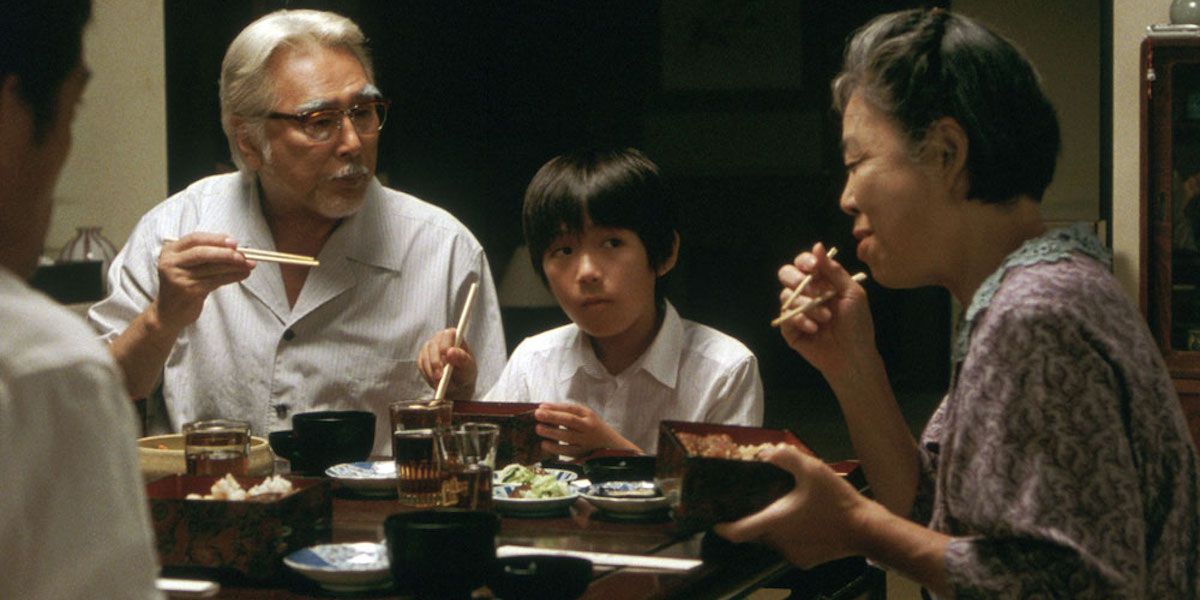One of Japan’s best living filmmakers, Hirokazu Kore-eda has made a name for himself with his humanist dramas. In 2018, Kore-eda’s film Shoplifters was nominated for the Best International Feature Oscar after winning the Palme D’or at the Cannes Film Festival. Many of his films are slice-of-life ones that depict children and adults going through contemporary struggles in middle and lower class Japan. Overflowing with compassion, Kore-eda’s films ride a fine line between creating engaging narratives for his characters but never teetering too far into glamorizing their situations. There’s a realism to his films that make them feel simultaneously raw and welcoming.
This year, the filmmaker is returning to the festival with his new film Broker. The film features a primarily Korean cast and reunites the director with Bae Doona, the star of his film Air Doll. The film is sure to be a player come awards season. Until then, here are seven essential films to get to know Hirokazu Kore-eda.
Like Father, Like Son (2013)
Switched at birth premises are used in many different genres. It could be the foundation for comedic hijinks, or it could also be the answer to a terrifying mystery in a horror film. As is the case with every Kore-eda film, he opts to tackle the subject with sensitivity and nuance. After receiving a call from the hospital where his son Keita (Keita Ninomiya) was born, Ryōta Nonomiya (Masaharu Fukuyama) and his wife Midori (Machiko Ono) learn that their biological son Ryūsei (Shôgen Hwang) was switched with Keita at birth. Unable to unlearn the information, the two reach out to the family raising Ryūsei and must decide whether they continue raising Keita or exchange him for their biological son. The key to the film’s success is that Kore-eda never chooses sides between the families. Every character, child or adult, is fully realized and is given a voice in their potentially life-changing decision. The fluidity of family is a theme that Kore-eda returns to in many of his films and Like Father, Like Son is one of his best interrogations of the subject.
Maborosi (1995)
In Kore-eda’s directorial debut Maborosi, the film follows new mother Yumiko (Makiko Esumi), who must cope with the loss of her husband after his sudden death. A few years pass, and Yumiko settles into an arranged marriage with a widower, Tamio (Takashi Naito). Still unable to overcome her grief, Yumiko wanders her new coastal home in search of an answer to her husband’s death. The first thing to note about Maborosi is its filmmaking style. Kore-eda’s aesthetic is notable here because it is one that he never returns to in the rest of his filmography. Clearly influenced by the works of Yasujirō Ozu, Kore-eda gorgeous cinematography features low-angle shots, carefully calculated framing, and long takes, all hallmarks of the older Japanese master. Even structurally, the deliberate pacing and uneventful plot of the film are reminiscent of the Setsuko Hara-led dramas of Ozu. While the film’s style is one that Kore-eda would quickly abandon, the tender emotions and realistic characters are elements that he would only improve on with each subsequent film.
Shoplifters (2018)
In the same year that Alfonso Cuaron’s Roma swept through all the international categories of awards season, Kore-eda’s Shoplifters skyrocketed the director to international stardom. The film follows a tight-knit, low-income family in Tokyo who must resort to shoplifting in order to survive. When the family comes across a young girl seemingly abandoned by her parents, they choose to take her in and teach her their shoplifting methods. Similar to Like Father, Like Son, this film questions the worth of blood relations and their necessity to uniting a family. The film posits that a family created out of choice can be just as nurturing as one sharing the same DNA. The cast is uniformly terrific, with especially touching performances from frequent Kore-eda collaborators Lily Franky and Kirin Kiki. The delicate direction of Kore-eda makes the film easy to watch, but don't be surprised to suddenly find yourself sobbing by the time the third act rolls along.
The Truth (2019)
Starring the likes of Catherine Deneuve, Juliette Binoche, and Ethan Hawke, Kore-eda 's first film set outside Japan, The Truth, definitely had many great actors jumping at the opportunity to be in it. The story follows a rocky reunion between famous French actress Fabienne Dangeville (Deneuve) and her daughter Lumir (Binoche), who is a scriptwriter. Fabienne has recently released an autobiography and is starring in an upcoming science fiction film about a mother who never ages. As a result of both the contents of the book and her acting in the film, the family quarrels over events from Fabienne and Lumir’s past that are being remembered differently. While plot-wise the film is no more complicated than any of Kore-eda’s other films, The Truth gains its significance from the twisted web of relationships and memories that are pitted against each other. The film is a fresh take on the parent-child relationships that Kore-eda is clearly obsessed with, and it’s a worthy follow-up to his Palme D’or winner.
Nobody Knows (2004)
Running at 141 minutes, Nobody Knows is by far Kore-eda’s longest film, but every minute of it feels earned. Based on the internationally-covered 1988 Sugamo child abandonment case, the film follows four children, each aged between five and twelve years old, who are abandoned by their mother and forced to survive on their own. Akira (Yūya Yagira) is the eldest son but, at twelve years old, there is only so much he can do to provide for his siblings. As Akira meets new people in the hopes of making a connection that will lead to financial support, every day proves to be its own battle.
Premiering at the 2004 Cannes Film Festival, Yagira went on to win the Best Actor award there, making the 14-year-old actor the youngest to ever accomplish that at the time. Being a film centering around four children, Kore-eda had to change his approach to directing the actors in order for it to appear more realistic. He encouraged the young cast members to express themselves freely and did not want them to feel tied too tightly to a script. Despite its playful cast of children, the film doesn’t aim for easy sentimentality. Kore-eda felt that audiences would take more away from the film if he more intensely captures the harsh reality of the situation for the siblings. And he does exactly that, striking a delicate balance between stoicism and childhood naivety.
After Life (2009)
After Life is an unusual film for Kore-eda. While the vast majority of his films deal with grounded premises and real human characters, After Life is a sort of fantastical fable about people's last wishes after they die. Featuring a sprawling cast of actors old and young, each one plays a recently deceased person who is given a week to decide on one memory that they wish to bring with them into the afterlife. Kore-eda leans heavily into the magical realism of his premise. While the film’s locations are drab and the central characters are civil servants routinely interviewing the newly deceased about their happiest memories, the overexposed cinematography captures a heightened quality to the images that make the setting believable as a sort of benevolent purgatory. Kore-eda opts to keep the film calm and meditative, but the understated nature of the film proves perfect for its wistful reminders of the transcendent qualities of memory.
Still Walking (2008)
One of Kore-eda’s most deceptively simple films, Still Walking takes place over the course of a single day as the Yokoyama family gets together to commemorate twelve years since the loss of the eldest son. After recently marrying a widow with a young son, the surviving son of the family Ryota (Hiroshi Abe) brings his new family to meet his mother (Kirin Kiki) and father (Yoshio Harada), who is a retired doctor. As Ryota and his family struggle to get along with his parents, family wounds become relitigated, and memories of what could have been inevitably enter the conversations.
Written as a direct response to the death of his mother, whom Kore-eda nursed in the last years of her life, his film aches with an overwhelming sense of longing. Kore-eda perfectly captures the paradox of the family unit being a seemingly endless reserve of conflict and solace. Although family squabbles threaten to ruin the occasion, family love always prevails in the end. Still Walking is Kore-eda’s ultimate story of family, one that transcends the personal aspect of its genesis to become a universal story of a complicated family.

